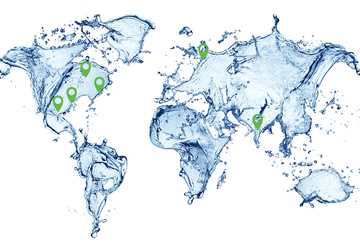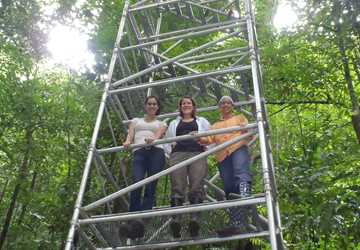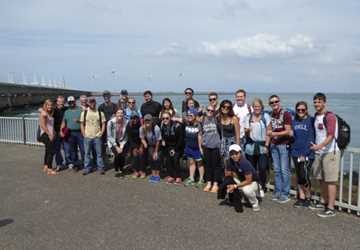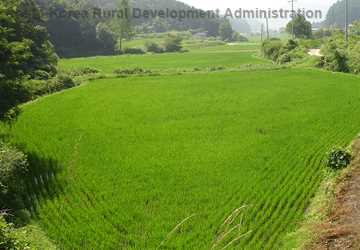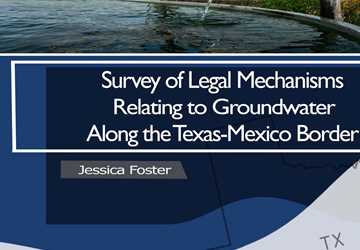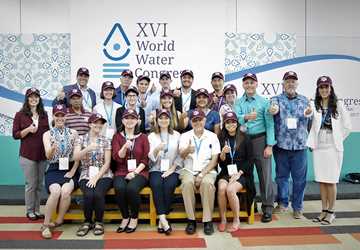Comprehensive report outlines governance, management of Texas-Mexico transboundary aquifers
A new report published by the Texas A&M University School of Law’s Program in Natural Resources Systems outlines the multiple groundwater governance frameworks that cover the transboundary aquifers along the Texas-Mexico border.
“Survey of legal mechanisms relating to groundwater along the Texas-Mexico border,” authored by Jessica Foster, a recent graduate of the School of Law, examines, catalogs and compares the various approaches that communities along the Texas-Mexico frontier take toward managing and allocating groundwater resources. It also presents a comprehensive survey of the existing rules, regulations, practices and guidelines that users and institutions on both sides employ to govern groundwater usage within their various jurisdictions.
The School of Law, Texas A&M Bush School of Government and Public Service’s Institute for Science, Technology and Public Policy and Texas Water Resources Institute, who are collaborating on an interdisciplinary transboundary aquifer project, sponsored the report.
Law professor Gabriel Eckstein said the report is a critical step in understanding the existing management structures for the shared groundwater resources in the border region as well as considering how to improve those mechanisms to ensure that the resource continues to be available in the future.
“While some of the information in the report was rather difficult to obtain, which makes it an excellent source of information, the real value of the report is its comprehensiveness,” Eckstein said. “It identifies every governance and management mechanism and institution on both sides of the frontier that pertains to groundwater resources and identifies how they all work, and often do not work, together.”
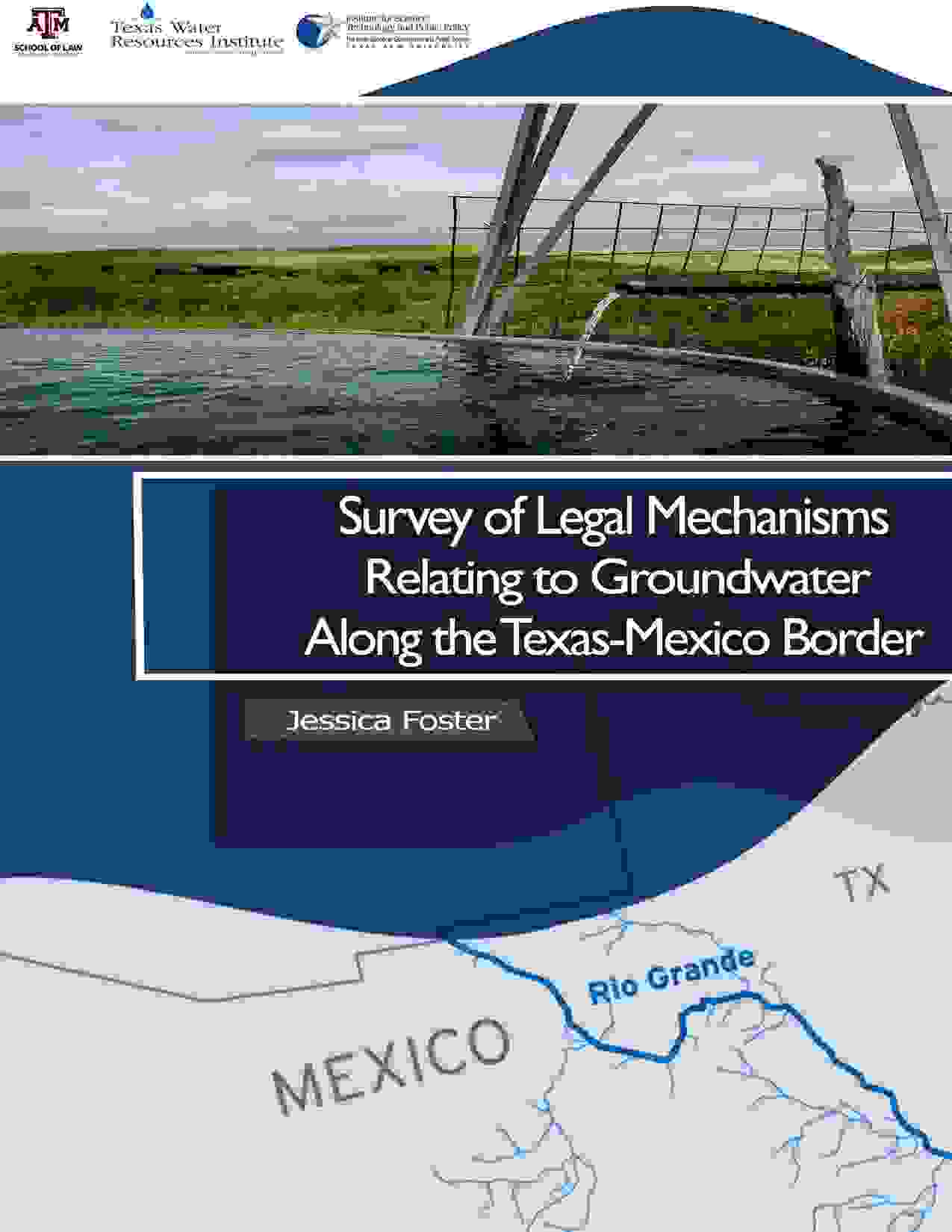
Dr. Rosario Sanchez, TWRI senior research scientist, agreed on the importance of the report.
“This is the first report of its kind about the border region,” Sanchez said. “There is no other additional resource that compiles all this information together. It is really a very important resource for groundwater policy development in the region.”
Sanchez said TWRI provided feedback on the policy/legal/institutional data from Mexico, contact information from experts on the Mexico side to assure robustness on the analysis and unedited GIS data adapted for this research.
Eckstein said the past work that the three sponsoring entities have done in research, locating and characterizing the various aquifers that lie on the Texas-Mexico border, served as a critical foundation underpinning this report.
He said the report’s goal is to lay a foundation for additional research and possible coordination across the border to improve knowledge and information about groundwater on the Texas-Mexico border and to ensure that these critical resources are governed and managed in a manner that ensures their availability into the future.

